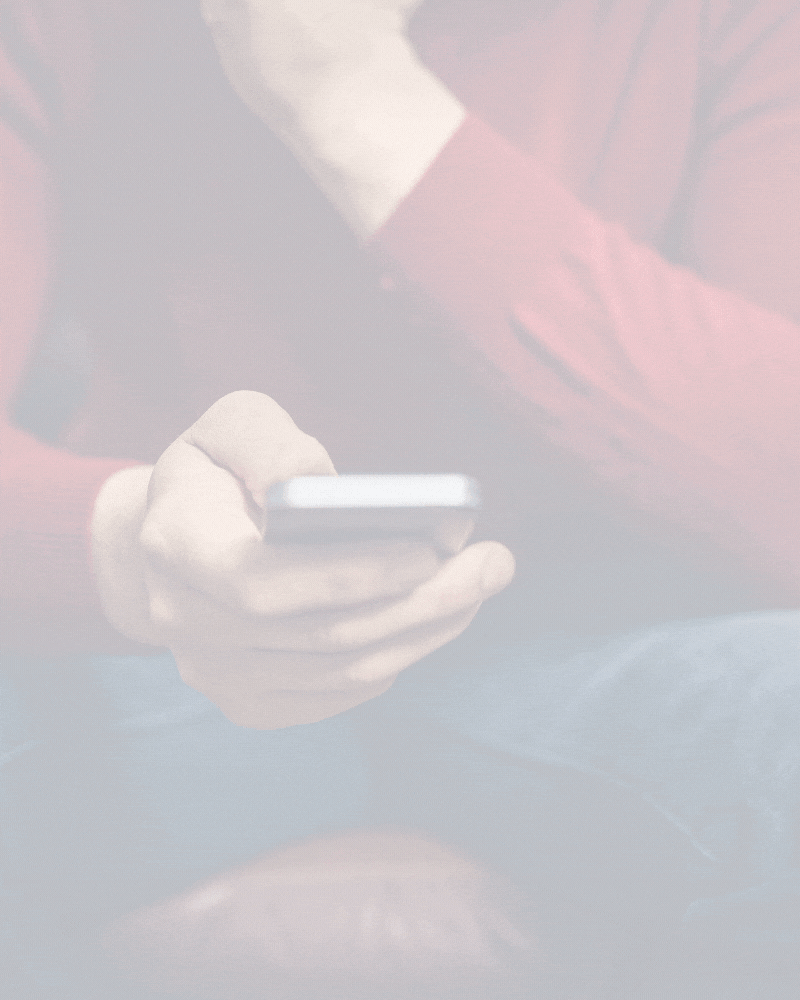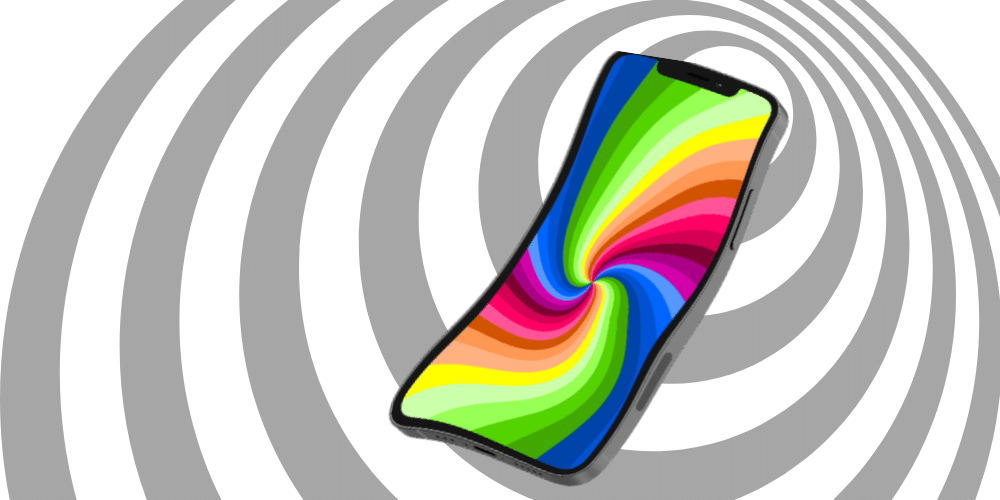This post was last updated on March 11th, 2023 at 02:54 pm
As a flip-phone user since 2012 (and before that having no cell phone), I reacted with some bemusement when the company Vitaminwater held a contest in 2019 promising $100,000 to one lucky person to give up his or her smartphone for a full year.
“Dang,” I thought, “if only I could have been getting paid for just going about my usual business.”
The person Vitaminwater picked, 29-year-old Elana Mugdan, said abandoning her smartphone was worthwhile, though an eye-opening and painful adjustment.
Mugdan wrote an account for Inside Edition about the year without her phone, focusing mainly on the mental-health effects.
“For a long time, I used my smartphone as a social crutch. It allowed me to ‘handle’ my anxiety by focusing on the gadget and shutting out external stimuli. It was an enabling device that exacerbated the worst aspects of my depression, allowing me to sit in place or lie in bed for hours, mindlessly scrolling in an attempt to distract myself from the crushing weight of a deeply unhappy existence,” she wrote.
I found the mental-health aspect of her switch to a flip phone most fascinating. As you read her piece, you realize what she gained (or reclaimed) was a higher state of self-awareness. In giving up her “social crutch,” she encountered a void and had to wrestle with it.
Read: Interview with Elana Mugdan, ‘Scroll Free for a Year’ winner
Are you ready to break the chain?
It’s easy for someone who’s never had a smartphone to ask you to consider dumping yours. It’s not lost on me, either, that you might be reading this post from your smartphone. Even if I don’t have a smartphone, my website benefits from others having one. There’s no completely escaping this technology.
And though I don’t use one, I understand its appeal. My wife, after all, has one. At times, especially when I take a wrong turn while driving, I wish I had one. It’s also getting more difficult to attend certain in-person events without one, a lesson I learned during the Milwaukee Brewers’ 2018 playoff run. Much to my frustration, the team only distributed tickets with a smartphone app (I asked my wife to use her smartphone to access my ticket). Smartphones have started to function as “digital gates,” linking access to certain services, such as laundromats and parking garages, to mobile apps.
Despite these challenges, I still believe the upsides to giving up the smartphone outweigh the downsides. While the smartphone is designed to make life more convenient, it often seems to have the opposite effect. Do you use a smartphone or does the smartphone use you?
6 things to expect when giving up a smartphone
Mugdan talks about giving up her smartphone as a gift. A contemplative lifestyle replaced the “convenience” she lost. Her focus shifted from that screen to her own needs. Everyone will experience the no-smartphone life differently, but anyone who takes the plunge will see the world from a different perspective. You might notice these five things:
01 You spend more time doing ‘nothing’
Life involves a lot of waiting. Before smartphones, we often waited while doing nothing. But it’s not a bad nothing. It’s the kind of nothing that invites observation and thoughtfulness. You gain an opportunity to live in the moment and more deeply engage your surroundings. When you’re not on your phone as much, you’ll begin to see just how dependent many others are on their devices.
02 You waste less time overall
This might seem contradictory to the previous observation, but while you’re spending more time doing “nothing,” you’re also wasting less time on social media and other gimmicky applications. Mugdan reported feeling “1000% more productive, but even without that little handheld hindrance, I still found myself wasting time.” Yes, we all wasted time before smartphones, and you’ll continue to do so without one but probably less than you would with one.
03 You become more self-reliant
Without a smartphone to give you directions, you’ll have to figure out in advance how to get somewhere. (Check out my post: Life with a dumb phone: How to travel without GPS) You might need to buy some old-fashioned paper maps. You might have to ask someone for directions. As a directionally challenged person, I believe it’s important to exercise whatever directional capacity I have left, which demands I plan my routes and play close attention to traffic signs and the road itself.
04 You move more
The habits of many smartphone users have a common theme: sitting. It’s noticeable at sporting events, social gatherings, over lunch, and even at grocery store parking lots. Here’s a typical behavior I see at parking lots: Somebody pulls into a parking lot and then sits in their car another five minutes while on their phone. They go into the store, come out, and sit again in their car for another five minutes while on their phone. All that sitting adds up. When you get rid of that smartphone, you have no reason to sit in your car (unless a Brewers game is on). I don’t think it’s a coincidence that Americans have become more sedentary in recent years. Without a smartphone, it’s easier to stay active throughout your day.
05 You become a better role model for your kids
People have been falling down internet rabbit holes since the early days of AOL. But with smartphones, many people spend most of their waking hours in internet rabbit holes. As a consequence, many children are learning from the adults in their lives that it is both healthy and normal to spend hours and hours on a device. But unless you’re willing to give up your smartphone, how will your kids know any different? How will they learn to spend their time doing things other than staring at a screen? Because the truth is, kids don’t need smartphones to lead fulfilling lives.
06 You don’t, however, become a Luddite
Giving up a smartphone doesn’t mean abandoning technology. I use a desktop computer for this website and many other tasks. A smartphone isn’t a phone as much as it is a mini-computer. I simply choose to use a big computer. In giving up a smartphone, you’re not vowing to give up technology, just a specific category of it.
Short-term costs vs. long-term benefits
In deciding to give up your smartphone, you must weigh long-term, less tangible benefits (living more in the present moment) against short-term, tangible benefits (a wide range of instantly accessible useful apps). The more integrated your life and smartphone have become, the more difficult it will be to let go the short-term benefits. For the right person under the right circumstances, giving up the smartphone can feel empowering and freeing. It’s also frugalmatic because you’re obtaining multiple benefits. You’re improving your productivity along with your mental health and possibly your physical health.
And let’s not forget the money you can save. Elana made the point in a tweet responding to this post: “Great article! And of course, one major upside to not having a phone is saving on monthly bills.”
So, are you ready to ditch your smartphone? If you’re feeling hesitant, that’s perfectly understandable. Nobody is offering you $100,000, after all, to give up your phone. But stay with me. Let’s see if we can’t isolate your biggest barrier. Maybe you can overcome it.
The 4 big barriers to ditching your smartphone
Let’s face it, dumping your smartphone isn’t as simple as reverting to your life before smartphones existed. Most people use smartphones, and so if you dump yours, you’ll encounter constant reminders about what you’re missing.
Indeed, the pressure to have one might only increase in the coming years. To ditch your smartphone, you’ll want a plan for dealing with a society that expects you to use one. Here are four barriers you might encounter on your smartphone-free journey. If none of these barriers apply to your situation, you’re likely a perfect candidate for dumping your smartphone. But even if some of the barriers do apply, that doesn’t mean you can’t overcome them.
01 Psychological dependence
Whether smartphones are truly addictive is debatable, though researchers agree smartphone use can become problematic. As someone who remembers life before the 2007 iPhone arrival, I am stunned at how firmly these devices have become entrenched in our culture. Because so many people see their smartphone habits reflected in how others use their smartphones, they don’t view these habits as problematic. It feels normal to them. However, emerging research shows the devices can have a toxic effect, contributing to anxiety and poor sleep.
Without a smartphone, you might feel somewhat separated from others, at least at first. This feeling is also known as the fear of missing out—FOMO. How well would you handle FOMO? You’ll want to make peace with this feeling before dumping your smartphone. Keep in mind, a great deal of what you’re missing is other people’s problematic smartphone use. Ask yourself this question: Are you missing out on anything of real substance?
02 Employer pressure
The extent to which employers require their employees to carry smartphones varies. As a former news reporter who worked in multiple newsrooms, I can attest to feeling some pressure to have a smartphone, though not having one never crimped my ability to gather the news. There’s often a way to do your job without a smartphone. However, sometimes there’s not, in which case ditching a smartphone might not be an option for you. If your employer mandates smartphones but you really want to ditch yours, you might be a candidate for taking other steps to manage your smartphone use.
You might also consider discussing the issue with your boss. In this conversation, make clear you have good reasons for not wanting a smartphone. Explain that you’re more productive and get more accomplished without one. You experience fewer distractions and can better focus on your work. Reassure your boss that you’re still accessible with your “dumb” phone. Also, having a “dumb” phone doesn’t mean you must resort to a flip phone. There are several sleek-looking minimalist devices now on the market. If your boss insists you carry a smartphone but can’t seem to come up with a good reason, you might ask yourself whether the job is a good match for you.
03 Organizational challenges
Many people rely on their phones to organize their life. They use them for everything from figuring out directions to keeping track of their appointments. However, there are ways to function smoothly without apps. I’m a firm believer in the paper planner, for instance. Before smartphones, they helped many people manage their schedules. Many planners also contain space for notations to reflect on what went right and wrong with your day, like a diary. While I’m no expert on organization, I can’t recall missing any meetings recorded in my planner. The key is to routinely check your planner to know what you have planned for the day and week.
As for the navigation issues, as I mentioned earlier in this post, physical maps work perfectly fine. In most cases, I know where I’m going, or at least have a general sense. A few wrong turns never killed me, and sometimes I even ask people for directions. They might look at you a little funny, but even in 2021, most people are happy to tell you which turn to take if they know.
The other major organizational challenge is the extent to which people’s phones have become entangled in the “internet of things,” linking everything from their lamps to their garage door openers to their phones. Obviously, you don’t want to ditch your phone until after you’ve sorted out how to manage your “internet of things” without one. In my opinion, a lot of these gadgets are overrated.
04 The boredom void
This is probably a much larger barrier to giving up a smartphone than many people realize. Growing up used to be an exercise in managing boredom. Kids complained about being bored, and their parents would say something like, “Then find something to do.” The kids might then build a fort or invent a game. Nowadays, many kids are handed a device to sooth their boredom, and so they don’t learn how to deal with the feeling of nothing to do. They struggle to tolerate boredom, let alone bring themselves to accept it. Smartphones are, in many ways, the perfect antidote to boredom—for both kids and adults. Giving up your smartphone could create a large void, which you’ll need to fill with meaningful activities if you hope to maintain a smartphone-free lifestyle.
I recommend reading Cal Newport’s “Digital Minimalism: Choosing a Focused Life in Busy World” for inspiration and tips on discovering new passions to fill the boredom void.
Read: ‘Social Dilemma’ pulls back the curtain on social media


So is dumping your smartphone for you?
If you worked through this list of barriers and feel like you can overcome each one, I encourage you to take the next step. Start thinking about how you’ll function without a smartphone. I won’t claim life without a smartphone is easier, but it can feel freeing. Sure, it would be nice to get $100,000 to give up your smartphone, but I’ve found life without one is a reward in itself.
With the right mindset, you can lead a life of fewer distractions. You can lead a life focused on the things and people that matter most. Are you up for it? Share this article if you’re ready for the challenge (perhaps, ironically, by using your smartphone… but for the last time, right?).


It’s not easy to do, but I made the jump about eight years ago and it has certainly improved my life. I could not have done it while I was still “in the workforce,” however. My employment required it due to travel and team communications involving documents and so forth. I have a tidy little flip phone that fits nicely in my back pocket and is much less expensive and less easily damaged. You must be prepared to make many accommodations, and you may lose an acquaintance or two who simply lose patience with your inability to jump like a trained dog at every prompt. I do often contemplate going back, but that urgent siren call fades eventually, as I involve myself in whatever is at hand. And, of course, there is always the computer, which is a requirement of most “work” nowadays. It can suck you into the online vortex, but at least you can get up and walk away. Thanks for your cogent article. You are bucking an inexorable trend.
Thanks for sharing your experience, Agnes. Yes, employment is a big barrier to preventing people from giving up their smartphone. Anyone who can do it while employed is especially fortunate. I’m glad the “flip phone life” is working out for you. I’d be curious to know if you’re in the U.S. or another country.
Thank you – great info…Is it Okay to use the iPhone with No data?
since i own the thing now… If I just phone calls and text… I called BELL Canadat
and requested that for start of New Year , so that is my intention –
but tell me please is SmartPhone still problem — i want to avoid Track +Trace etc
I use my Home Computer for internet / emails … Peace : )
Hi Brian,
It sounds like you’re on the right path. The fact that you’re thinking about this issue says a lot. As long as you feel in control of your phone use, using a smartphone as a dumb phone is fine. The trouble some people have with having a smartphone with no data plan is that they then start seeking out WiFi connections, so they still end up spending a lot of time on their phone. But if you think you won’t simply hook up to WiFi, you should be fine. The author of “Digital Minimalism” has a smartphone but doesn’t use it for social media, etc.
Andrew
Really great read, glad I found this blog! Some awesome points posted here and I’m definitely attached to my smartphone.
Unfortunately I need my phone for work related tasks, but I think you’ve inspired me to trim the bad apps in an attempt to pull away from unnecessary reliance.